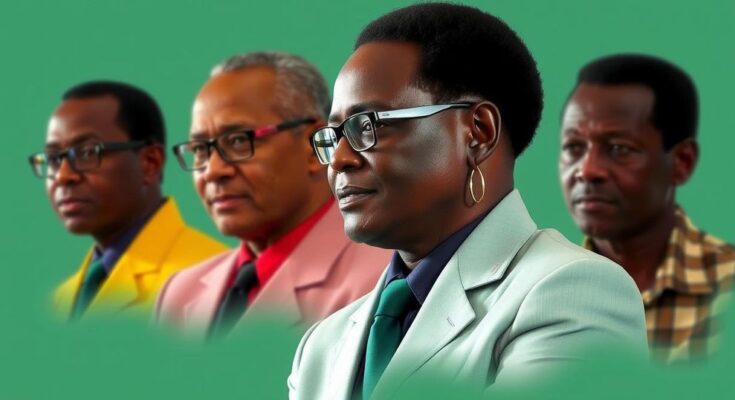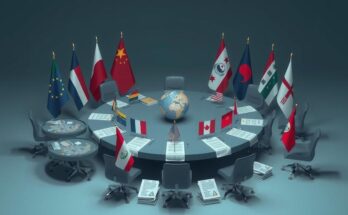South Sudan is set to hold general elections in December 2026 after several delays. Key issues contributing to the postponement include a lack of political will, inadequate funding, and incomplete preparations, such as conducting a census and drafting a permanent constitution. Concerns regarding potential instability and violence surrounding mismanaged elections persist, drawing attention from international observers.
South Sudan is poised to conduct long-postponed general elections in December 2026. Originally scheduled for this month, the vote was delayed due to incomplete preparations, including a required census, the establishment of a permanent constitution, and the registration of political parties. The extension of the election timeline was first announced in June, thereby prolonging the tenure of the current transitional government led by President Salva Kiir.
Abendengo Akok, the chair of South Sudan’s National Electoral Commission, emphasized the necessity of political commitment for the elections to be successful. He affirmed that, given the seriousness of the situation, there is adequate time for successful election management. Akok further highlighted the importance of sufficient funding to ensure electoral success, suggesting that two years is adequate if there is a collective will.
Nicholas Haysom, the head of the United Nations Mission in South Sudan, recently cautioned that poorly managed elections could lead to renewed violence, destabilizing the country further. He asserted that well-prepared elections, accompanied by trust-building efforts, could transform a potentially divisive process into one that fosters national unity. Haysom stated, “together they control the future of South Sudan,” emphasizing the significance of collective participation in the democratic process.
Since gaining independence from Sudan in 2011, South Sudan has faced persistent turmoil. The nation was set to hold its first election in 2015; however, civil conflict erupted in 2013 between President Kiir and former Vice President Riek Machar, hindering democratic exercises. Following a peace agreement in 2018, further election delays led to the 2026 schedule, which was agreed upon by Kiir and Machar.
Wani Yusuf, who voted in the referendum for independence, now anticipates voting as an adult, expressing hope for an informed choice in electing the country’s first democratically elected government. Nevertheless, he expressed skepticism regarding the feasibility of the scheduled elections, remarking, “When you look at the period that we spend postponing the election, it still tells you that … there is also high possibility that election might not take place within those two years’ time.” Furthermore, the electoral commission has yet to begin essential functions due to budget constraints, including the census, which requires a significant timeframe for completion.
The lack of proactive measures, as pointed out by Gabriel Deng, Deputy Chair of the electoral commission, showcases the complications that continue to hinder the electoral process, raising concerns about adherence to the new timeline.
The upcoming elections in South Sudan mark a significant moment for the nation, which has endured lengthy delays in establishing democratic governance. Following its independence in 2011, South Sudan has faced numerous challenges, including civil conflict and political instability. The recent decision to delay the elections again highlights the ongoing obstacles the country faces as it seeks to develop a stable political environment. With the international community closely observing the situation, the potential for renewed violence looms large if the electoral process is not managed effectively.
The scheduled elections in December 2026 present a critical opportunity for South Sudan to establish democratic governance, contingent upon effective management and political commitment. With ongoing challenges such as budget limitations and the necessity of preparatory steps like the census, the feasibility of the elections remains uncertain. The nation stands at a crossroads, and the decisions made in the coming years will significantly impact its future stability and unity.
Original Source: www.voanews.com




